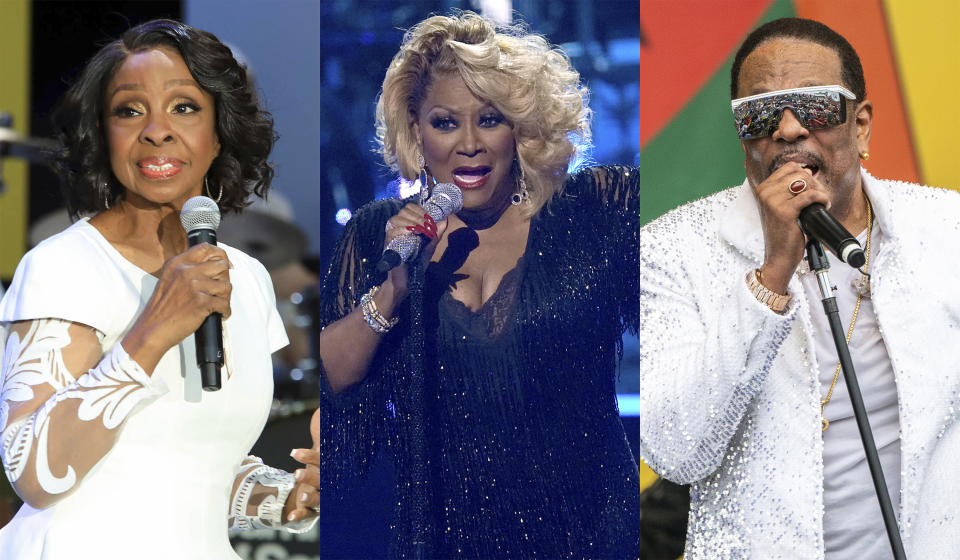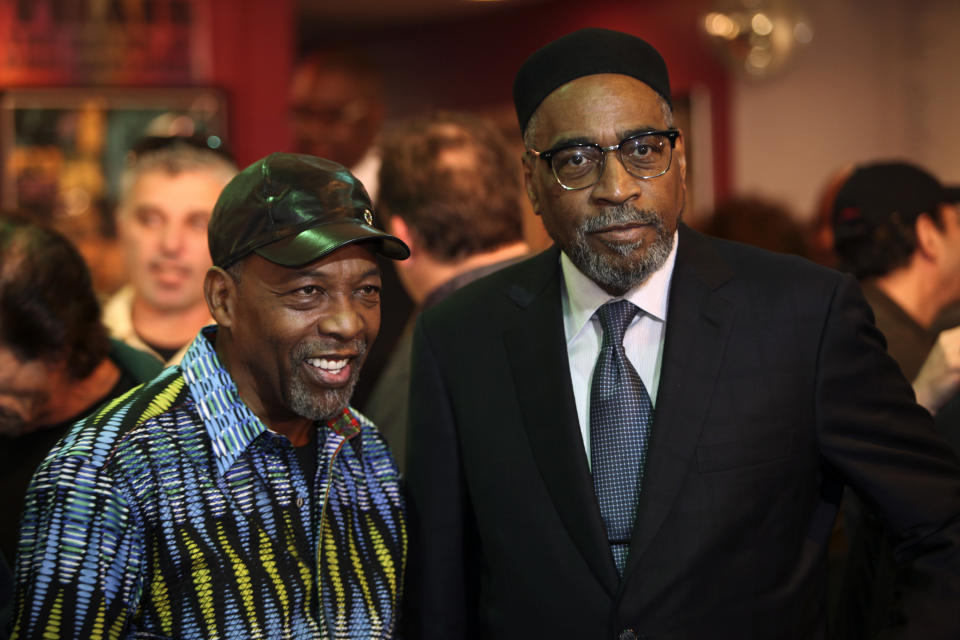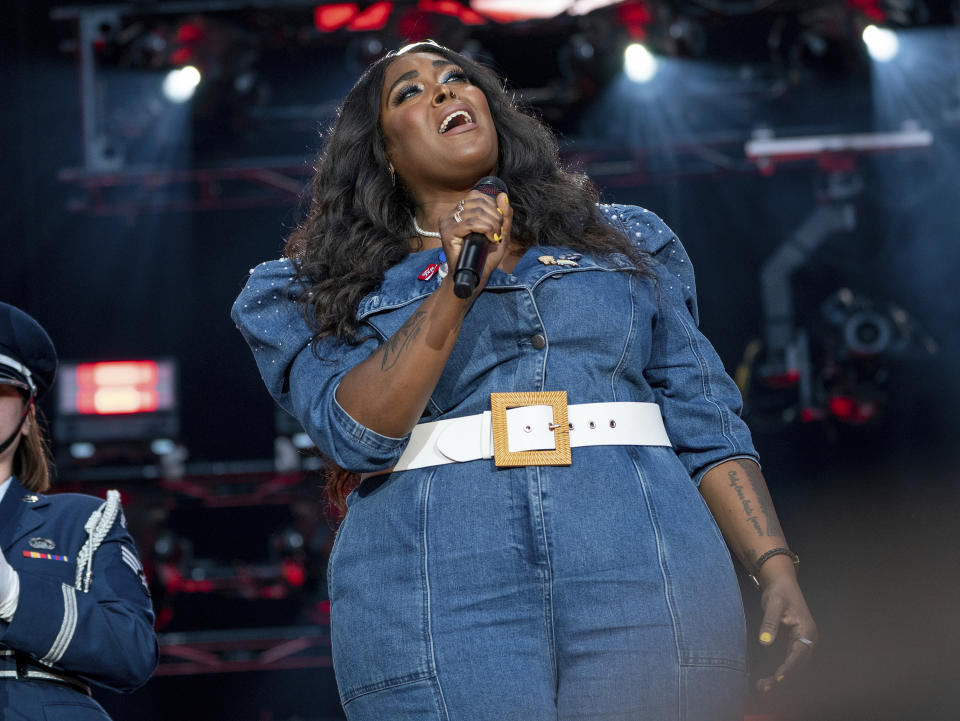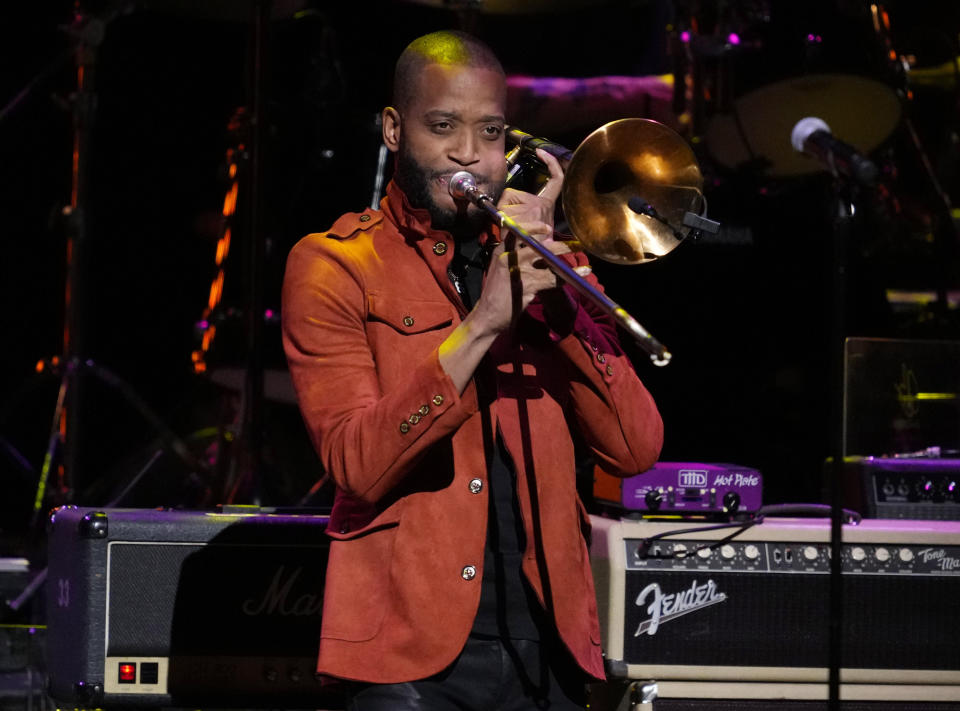Black Music Month has evolved since the 1970s. Here's what you need to know
LOS ANGELES (AP) — Every June since the 1970s, across the United States, musicians, fans and industry professionals celebrate Black Music Month. It's an opportunity to highlight the contributions of Black artists and position Black art at the center of American culture across popular music and beyond.
Black Music Month 's origins trace back to 1979. In that year, a decade after the Civil Rights era, President Jimmy Carter designated June a time to celebrate the cultural and historical significance of Black musicianship and held the first ever Black Music Month celebration on the White House lawn. That makes 2024 its 45th annual commemoration.
But what inspired Black Music Month in the first place, and how has it evolved?
WHAT IS THE HISTORY OF BLACK MUSIC MONTH?
Black Music Month was originally founded in 1979, but not by President Carter. Credit goes to Philadelphia soul pioneer Kenny Gamble of Gamble and Huff and a couple of other associates, said Naima Cochrane of the Black Music Action Coalition, an advocacy organization founded in June 2020 following a music industry blackout in response to the murder of George Floyd.
“Black Music Month was founded out of an organization called the Black Music Association,” she says.
Gamble based his organization, founded in 1978, on the Country Music Association because he saw how much power and influence they held in the country music business, Cochrane explains. He aimed to do the same with Black stakeholders in the music industry. Those included promoters, retailers, bookers, venue owners, executives, artists and household names like Rev. Jesse Jackson and Motown Records founder Berry Gordy.
Black Music Month, coincidentally, was brought forth by Gamble, Cleveland radio DJ Ed Wright, and media strategist Dyana Williams.
“Black Music Month was originally created to promote, protect, and perpetuate the business of Black music, not just to celebrate Black music," says Cochrane. “The tagline was originally ‘Black music is green,’ and it was meant as a way to drive retail sales to increase awareness for the artists but honestly, really to increase the business of Black music, and not just to celebrate the history of Black music."
“It’s evolved into something different over the years… The original intention has gotten lost," she says. “The original purpose of the month was to prove that the business of Black music was profitable.”
HOW IS BLACK MUSIC MONTH CELEBRATED?
Each June, Black Music Month is recognized with a presidential proclamation.
“During Black Music Month, we celebrate the Black artists and creatives whose work has so often been a tidal wave of change — not only by defining the American songbook and culture but also by capturing our greatest hopes for the future and pushing us to march forward together,” President Joe Biden's 2024 proclamation read. "Black music is a staple of American art and a powerhouse of our culture — that is why we must continue to open doors for the next generation of Black artists."
This year, Biden will once again celebrate Black Music Month with a Juneteenth concert featuring Patti LaBelle, Gladys Knight, Charlie Wilson, Kirk Franklin, Anthony Hamilton, Brittney Spencer, Trombone Shorty and more.
Under the Obama Administration, Black Music Month was re-named African-American Music Appreciation Month but it's since gone back to its roots.
Black Music Month "is an acknowledgement that Black music is an original American artform and has influence in almost every other American art form. But it was designed to drive the business of Black music to Black stakeholders,” Cochrane added.
In the years since its origins, Black Music Month has often been used as a salute to Black music excellence: 30 days to celebrate Black musicianship across media platforms, museums, streaming platforms, and beyond. But some fear that concentrating the observance might have limiting effects.
WHAT ARE SOME OF THE DIFFERING OPINIONS ABOUT BLACK MUSIC MONTH?
“I always felt conflicted: happy to see the uplifting of Black artists but disappointed that Black Music Month only benefitted superstars (and ostensibly turned the other 11 months over to white musicians),” 4AD Records label manager Nabil Ayers wrote of Black Music Month in 2021.
“Musically, the Black Music Month that I knew in the ’90s and 2000s focused on the artists who could potentially sell the most records," he continued. "But the reality is that it costs money to make music, and financial support for artists matters now more than ever.”
Of course, there are varying opinions. In 2016, Philadelphia resident Branford Jones started They Have the Range, a popular Instagram account with one million followers, dedicated to showcasing Black singers.
“When I created it, Black music programming wasn’t really there,” he says, noting a few other performance pages that “weren’t posting everyday Black people,” and a modern-day dearth of shows like “Soul Train” or BET’s “106th and Park.”
“For They Have the Range, every month is Black Music Month,” Jones says, laughing. “But it’s important to have a Black Music Month, especially in a time where so many people are trying to erase historical context. ... We know how much Black folks have contributed to the world when it comes to music.”
He cites the Hulu series “The 1619 Project” as an influence: “One of the things they said about Black music is that it’s uncatchable. Every single decade, (Black music) has been able to shift, change, and lead the masses.”
For him, Black Music Month is an opportunity for celebration that can endure all year long — and it feels especially poignant that it lands in the month that also holds Juneteenth.
“As time moves on, more brands will become involved, more people will get involved,” he says. “And so it is important to recognize it.”






